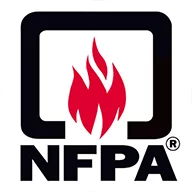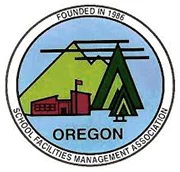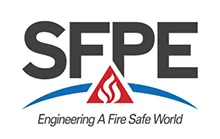Inspection
Repair
& Installation
Management
Consultation
Customer FAQs
Have questions about your fire alarm or sprinkler system? Want to learn more about inspections and testing your systems? The team at PSI has compiled a list of the most frequently asked questions from customers that will hopefully answer some of the inquiries that you may have about fire and life safety.
When repairing our sprinkler system, will you have to shut off the water?
In most instances, your sprinkler system is on a separately controlled water supply. We may have to turn off your fire sprinkler water supply but that will not affect your domestic water.
Are you going to set off any alarms during your visit?
It depends on why we’re there. If we are doing your code-required periodic testing, it is required that we test the notification appliances along with all other system devices and functions—so in this case, yes. However, once it is proven that all notification devices work as expected, we may be able to do the remainder of the testing silently.
Most repairs can be done without needing to activate the entire system unless the repair is specific to the notification circuits or devices themselves. Your PSI technician will always let you know what to expect and help you through the process of contacting the Central Station Monitoring company so that the fire department will not be notified when the test is being conducted.
Will you need access to tenant spaces?
When we come to your facility to do periodic inspection and testing services, it is required that we physically observe (inspect) all sprinkler heads and alarm devices to make sure that they are in good condition and no building modifications, that may affect coverage, have taken place since our last visit. So in this case, yes.
Most overall system repairs can be done from your sprinkler room or control panel location unless it involves a head or device located in your tenant’s space.
How long will this take?
Our Account Reps use a program with an algorithm based on years of historic data, as well as their extensive knowledge of the industry, to estimate the time needed to complete inspection and test services. Our dispatchers and technicians will have a good idea of the time required and will be happy to share this information.
It is recommended that we conduct a pre-inspection meeting to make sure everyone is prepared and that we have access to all required areas. Unfortunately, troubleshooting a system that has malfunctioned has no such guidance. Product-specific failures are relatively simple, especially with the built-in diagnostics capabilities provided by some of the more advanced system manufacturers. Field wiring or piping is often the most challenging. Water damage, power surges, and building modifications are done without proper documentation by unqualified personnel can be very difficult and throw estimated repair times into the wind.
Your best course of action is to partner with a qualified company, like PSI, to ensure that all system features are properly documented, and periodic maintenance is performed regularly in order to minimize downtime.
Do you flow water from the sprinklers to test?
It is required that we flow water to verify the proper operation of your sprinkler system. However, it’s not like the movies, where someone pulls a manual station, and the entire area is sprayed down.
Your system has been designed with inspection features that allow activation of the flow switches by flowing water through them to a drain location. A standard sprinkler system has thermal elements on each individual head. Each head is activated individually when the thermal element is tripped. This is the reason that it is critically important not to paint the heads (it changes their thermal properties) or use them as a clothes hanger. There is water available right away if you accidentally damage one of the thermal elements.
Why is there a possibility you will need to cut access holes to remove sprinklers?
When removing sprinkler heads there is a possibility that years of corrosion or improper fitment may cause them to be seized in their fittings. In this case, PSI technicians will cut small access holes allowing them to hold pipe and fittings in place while they remove the seized sprinkler heads. In other cases improperly installed or brittle CPVC pipe (plastic) may break during attempts to remove the sprinkler head and access holes will be required to perform repairs.
In all cases, PSI Service Fitters are equipped with plastic sheeting, wet/dry vacuums, and other water mitigation devices to minimize dust and water intrusion into the space.
What do I do when my fire alarm panel beeps?
A beeping fire alarm is a cry for help. This usually means that something needs attention. A “trouble condition”, like a missing device or dirty detector is a common cause. It may also be a “supervisory alarm”—this might indicate that a sprinkler valve has been shut off or a duct detector has been tripped, shutting down an HVAC unit. In any case, you’ll want to notify maintenance or management staff to have the issue looked into.
Normally, there will be a button that will silence the panel beeping but if you’re not familiar with the operation of the system you could inadvertently activate the alarms if you select the wrong one. If you are responsible for the operation of your fire alarm, be sure to reach out to us when we’re conducting your inspection and testing services. It’s a great time to learn how things work. Your PSI service technician will be happy to teach you the basics or arrange for more in-depth training if you so desire.
I just took over the management of a building. How do I find out what is required and how to operate my fire alarm and sprinkler systems?
Contact one of our account reps. PSI will be pleased to provide a no-charge system survey and give you an idea of the scope and cost for all your Life Safety System needs. As your service partner, we can help make sure you are, and remain, in compliance with the local and national codes. We’ll schedule and coordinate your Inspection, Test, and Maintenance (ITM) and any necessary system operator training.
What do I do when I see that my fire extinguisher gauge isn’t in the green?
Most likely, if you see that the gauge on your fire extinguisher isn’t in the green, it has been discharged and should be replaced or re-charged immediately. It’s a good idea to have a few spares on hand, and a good idea to provide your employees training on the basic use of a fire extinguisher. You don’t necessarily want them to fight a fire but knowing how to use an extinguisher may help them evacuate through an area that might be their only hope of escape. PSI provides all related services.
How long should I expect my fire alarm to last before it needs to be replaced?
Common estimates for the life of a fire alarm system are 10-15 years. Like everything, preventative maintenance can help extend the life and lack thereof will not only shorten this time but will make ownership difficult and unnecessarily expensive tending to unanticipated maintenance and emergency repairs.
Modern fire alarms systems are packed with self-diagnostic features that help identify and anticipate problems before they become emergencies. Quality manufacturers, like Edwards, also build each new generation of fire technology with great regard to legacy products. Choosing this level of product will ensure the longest lifespan and provide a measured upgrade path. PSI can provide expertise in your development of a long-term strategy to balance your budget and life safety needs.
What’s the best way to do a fire drill?
Fire drills are generally focused on what to do when the alarm sounds, not necessarily how to initiate the noise. It’s a good idea to make a drill as real as possible, so generally pulling a pull station would be the best method. If you operate in a building that does not require a pull station, there is usually a “drill” switch integrated into the fire alarm panel.
A great time to figure out the answer to this question for your system is to participate in periodic testing. When PSI comes to your site to test, make sure to have that conversation with the Inspection Lead. They will be happy to give you instructions on the best method as well as the general operation instruction—well worth your time.
What’s the best way to prevent false alarms?
False alarms, or what the manufacturers would prefer we call “nuisance alarm”, can best be prevented by proper installation and maintenance habits. Most newer fire alarm panels and smoke detectors have features that monitor for false alarm issues, like dirty detectors or faulty circuit wiring.
If your system doesn’t have those features, or even if it does, and you are experiencing false alarms, PSI can help troubleshoot and make recommendations for corrective action and/or upgrades.
When an alarm does sound, how long do we have to listen to that loud noise?
It’s an unfortunate fact that the purpose of a fire alarm is to alert occupants of the need to evacuate or relocate, in the case of a fire. It usually isn’t considered obnoxious unless there is no real (or known) reason for the alarm to be sounding—especially if “it just happens all the time for no reason”.
If you see a fire headed your way, you may consider that loud noise music to your ears. The goal should be to maintain the system in optimal working order so that only real threats are detected and acted upon. That’s why the code requires that the system be inspected, tested, and maintained at regular intervals. Of course, part of the testing is making sure that the obnoxious noise comes on when the system is activated, so hang in there while we do that.
We have patients/clients in our facility—can you make the test quiet?
The code does allow for “silent testing” and the bypassing of emergency control functions while we verify all input devices. However, this is only allowed once you have verified that those circuits and control functions work according to the operation matrix.
Can I still use the elevators while you are testing?
Other than when we are testing the operation of the elevators themselves, you should be able to use the elevators. There are exceptions to this rule so be sure and ask your PSI Inspection Team to be sure for your building.
The alarm is going off and it's raining outside—do we really need to evacuate the building?
In the event of a fire, it is important to get out of the building and allow first responders to concentrate on putting out the fire rather than rescuing occupants that did not evacuate. Your safety plan should identify how to get out and where to go so you can be accounted for—hopefully enjoying the rain outside.


























